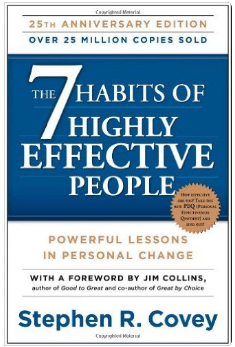August 26, 2016
Culture Eats Strategy for Lunch – Part 8 – 2 questions every young athlete needs to be asked
Stephen Covey teaches in The 7 Habits of Highly Effective People: ‘Seek first to understand, then to be understood.’ To better understand the kids you coach, there are two questions to start with.
Culture Eats Strategy for Lunch Part 8 – Seek First To Understand
As coaches, we often jump to analyze, interpret and fix anything that is going wrong in our program. It is in our nature to continuously improve our program. And it should be. But the procedures and processes can distract us from why we are called to coach. If you have followed me for long or listened to my podcasts, you know my favorite quote is Frederick Douglass’
‘It is easier to build strong children than to repair broken men.’
Another quote, attributed to several different coaches, is
‘Kids don’t care how much you know until they know how much you care.’
The only way we really get to know anyone, including kids, is to ask questions about them and hear their stories. 2 simple but important questions to start with are:
1 – What is your favorite thing about playing this sport and for this team?
2 – What is your least favorite thing?
Then you can start diving deeper. Here are a few tips:
- Make sure you understand each kid’s expectations – are they on the team to just have fun, to put it on their resume, or to become a D1 college athlete?
- If a kids loses his temper and explodes during a practice or game – go ahead and discipline him appropriately, but ask some deeper questions about his life outside the sport. Often there are stressors with their home life that are impacting them.
- My friend Kevin Kennedy uses the phrase ‘Isn’t that interesting’ – Don’t be judgmental when coaching – rather, make observations and analyze why things are happening. Ask questions before judging.
- I recently met the founder of an interesting company called First Team Reps – They have created a tool that provides feedback to coaches based on anonymous surveys of the players. Some of the questions help the coaches communicate better, such as ‘What plays don’t you understand?’ The cool thing is they end their surveys with the question ‘Are there any stressors outside of football in your life right now?’ They have found that since it is anonymous the kids are very honest and many will pour their heart out.
Tim Elmore writes in his Generation iY book: ‘Great teachers build a relationship so strong that it can bear the weight of truth.’ If kids understand that you have their best interest in mind, they will respond to and listen to coaching and constructive criticism. And more importantly, you will be building stronger children.
–
Next week we’ll look into ways to build a championship culture when coaching a team with your own kid on it.
–
Check out the rest of this 10 part series on Culture: Go to blog posts

